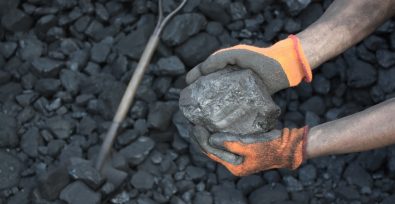In an episode of the podcast On Point hosted by WBUR, host Meghna Chakrabarti and Siddharth Kara, associate professor of Human Trafficking and Modern Slavery at the University of Nottingham, speak about the daunting reality of modern slavery in the production of cobalt – one of the most sought-after minerals in the world.
What is cobalt and why is it so important for the energy transition?
Cobalt is a critical metal used to produce batteries for electric vehicles (EVs). It prevents batteries from overheating, thus reducing the risk of fires, and enhances their efficiency, allowing for less frequent charging. The metal’s demand is expected to double by 2030, in line with the U.S. goals to halve emissions.
The Democratic Republic of the Congo (D.R.C) is the leading source of cobalt, contributing 70% to the global market, with significant mining operations controlled by foreign entities. Artisanal mining, which is often dangerous and unregulated, accounts for a considerable portion of the cobalt mined. Over 255,000 people, including 40,000 children, engage in these precarious mining activities as a means of survival in a nation marked by extreme poverty despite its vast mineral wealth.
Exploitation on the ground
Driven by poverty, children are forced into hard labor and sexual exploitation.
When we went over there, we saw for ourselves what was really happening. Women would be forced to have sex with the miners, and they would contract STDs. – Annie Sinanduku Mwange, President of the National Network of Women in Mining
Children are forced into hazardous labor to help out their parents in an attempt to earn enough money to eat, including young boys like 13-year-old Deomba who tragically died in a mine collapse.
Who is responsible?
The cobalt crisis in the D.R.C is perpetuated by various stakeholders with distinct but overlapping roles. Chinese corporations hold a significant stake in cobalt mining, managing 70-80% of the D.R.C’s production, often prioritizing profit over the welfare of the local workforce. The Congolese government, having struck deals with China in hopes of economic upliftment and infrastructure development, has largely failed to deliver on these promises, leaving its citizens in continued poverty and its resources exploited.
Western companies and governments, while pushing for a transition to sustainable energy, indirectly contribute to the demand that drives this exploitation. Cobalt is essential for electric vehicles and other green technologies, creating a high-stakes market that often overlooks the source of the raw materials.
So everything that’s happening, all the corruption, all the violence, all the bad actors, it’s all a consequence of this scramble that’s been ignited by Chinese and Western governments pushing these policies. – Siddharth Kara
Furthermore, companies are responsible for the exploitation in D.R.C’s cobalt mines due to inadequate due diligence and lack of enforcement of ethical standards in their supply chains. Their failure to ensure transparency and invest in safe mining practices contributes to ongoing labor abuses and unsafe conditions. Companies need to commit to ethical sourcing and improve the welfare of miners to prevent such exploitation.
That is why we were shocked to hear about a U.S. Court of Appeal’s decision to absolve large companies of any responsibility suffered by the Congolese people, as we reported last week.
No clean energy without human rights
We believe that no corporation, including clean energy companies, should profit from forced labor. Though tackling the environmental crisis is urgent, so is addressing human rights abuses. That is why we are calling on world leaders to pass mandatory human rights due diligence laws so that the private and public sectors are required to take responsibility for the impact of modern slavery and all other human rights abuses across their supply chains.
The more that truth seekers go down into the Congo and bring the truth of this horror out into the world, we’ll reach that inevitable tipping point, as has always been the case with advancements in human rights and social change. We’ll reach that tipping point where people with moral rigor will demand that these injustices be set right, and they won’t stop until they drag humanity and these companies forward in doing it. – Siddharth Kara
The tipping point is now. Sign our petition today!







Freedom United is interested in hearing from our community and welcomes relevant, informed comments, advice, and insights that advance the conversation around our campaigns and advocacy. We value inclusivity and respect within our community. To be approved, your comments should be civil.